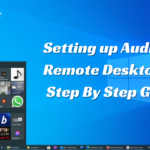How Do You Get Niche Edits in SEO?
- 1 How Do You Get Niche Edits in SEO?
- 1.1 Do Your Research
- 1.2 Reach Out to the Webmaster or Editor
- 1.3 Follow Up
- 1.4 Offer to Write Guest Posts
- 1.5 Pay for a Link
- 1.6 Tools That Can Help You Find Niche Edits
- 1.7 What To Do If You Can’t Get Niche Edits
- 1.8 Which Tactics Should I Avoid?
- 1.8.1 Reciprocal linking:
- 1.8.2 Link farms:
- 1.8.3 Black-hat SEO:
- 2 Bottom Line
In the world of SEO, “niche edits” are a popular link-building tactic. Niche edits involve finding relevant, high-authority websites in your industry or niche and then contacting the webmaster or editor to ask if they would like to add a link to your site within their content.
If you can successfully secure a niche edit from a relevant and high-authority website, it can do wonders for your website’s SEO. You will get a valuable backlink from a trusted source and likely see an uptick in traffic and engagement from the referring site.
Of course, securing a niche edit is easier said than done. This article will give tips on successfully getting niche edits for your website.
How Do You Get Niche Edits in SEO?
Do Your Research
The first step to getting a niche edit is to do your homework. Finding websites relevant to your industry or niche with high domain authority (DA) would be best. The higher the DA of the website, the more valuable the link will be for your site.
You can use a tool like Moz’s Open Site Explorer to find websites that fit this criterion. Enter a website URL that you think might be a good fit, and OSE will show you its DA score. You can also use advanced search operators in Google to find websites with high DAs. For example, if you’re in the travel industry, you could search for “travel websites” + “high DA.”
Reach Out to the Webmaster or Editor
Once you’ve compiled a list of potential websites to target, it’s time to reach out to their owners. The best way to do this is to find the contact information for the site’s webmaster or editor and then email them asking if they would be interested in adding a link to your site.
When reaching out, be sure to be polite and professional. Tell them why you think their site would be a good fit for your link, and explain how it would benefit their readers. In most cases, web admins and editors are happy to oblige if they think the link is valuable for their readers.
Follow Up
Don’t be discouraged if you don’t hear back from the webmaster or editor right away. They may be busy, or they may not have seen your email. In this case, the best thing to do is to follow up after a week or so. A polite follow-up email can go a long way.
Offer to Write Guest Posts
Sometimes, you may have trouble getting a web admin or editor to respond to your request for a link. If this happens, you can offer to write a guest post for their site. This way, you can include a link to your site within the body of the guest post.
Not all websites accept guest posts, but it’s worth offering if you’re having trouble getting a link via other methods.
Pay for a Link
If all else fails, you can always pay for a link. This isn’t the ideal way to get links, as it can be spammy. But if you’re desperate, there are a few services out there that can help you buy links. Just be cautious, as Google does not favor paid links.
Tools That Can Help You Find Niche Edits
A few different tools and services can help you find niche edits for your website. Some of our favorites include:
- BuzzSumo: BuzzSumo is a tool that allows you to see the most famous content across all social media platforms. It can help you find relevant, high-authority websites in your industry or niche.
- Ahrefs: Ahrefs is an SEO tool that allows you to see the backlinks of any website. This can help find sites that have already linked to similar content.
- Majestic: Majestic is another SEO tool similar to Ahrefs. It also allows you to see a website’s backlinks.
What To Do If You Can’t Get Niche Edits
If you can’t seem to get any niche edits for your website, don’t worry. There are plenty of other link-building tactics that you can use to improve your site’s SEO. Our favorites include guest posting, Broken Link Building, and link roundups.
Which Tactics Should I Avoid?
There are a few link-building tactics that you should avoid, as they can do more harm than good. These include:
Reciprocal linking:
Reciprocal linking occurs when two website owners agree to link to each other’s sites. This used to be a common practice, but it’s no longer considered an effective link-building tactic.
Link farms:
Link farms are websites that exist solely to sell links. These links offer little to no value and can hurt your SEO.
Black-hat SEO:
Black-hat SEO is any tactic that’s manipulative or unethical. This includes keyword stuffing, link farms, and other shady practices.
Bottom Line
Niche edits can be an effective way to build links to your website. But if you can’t seem to get any niche edits, don’t worry. There are plenty of other link-building tactics that you can use to improve your site’s SEO. Just be sure to avoid any practices that are considered to be manipulative or unethical.
Do you have any questions about niche edits? Let us know in the comments below.




















